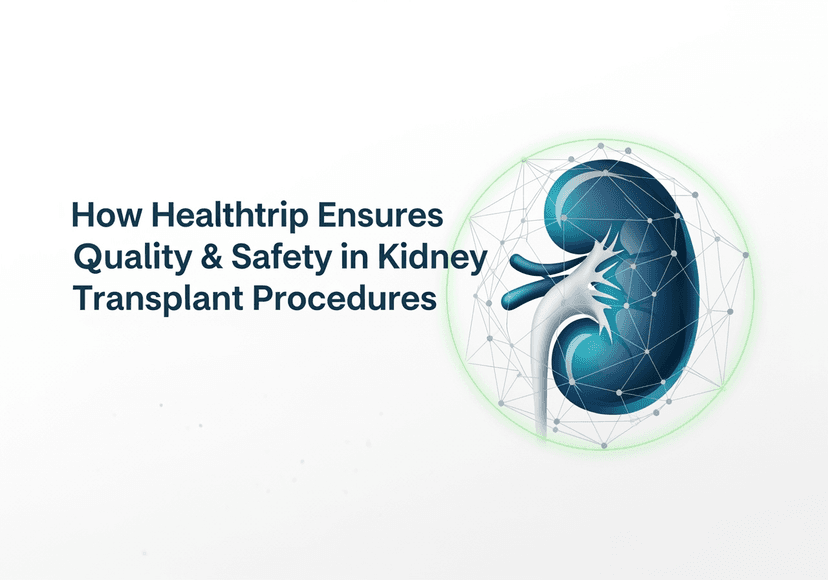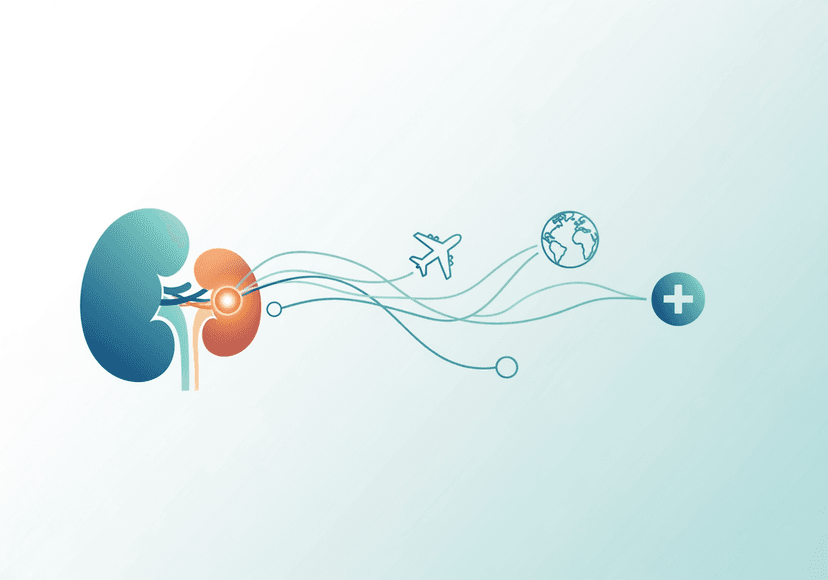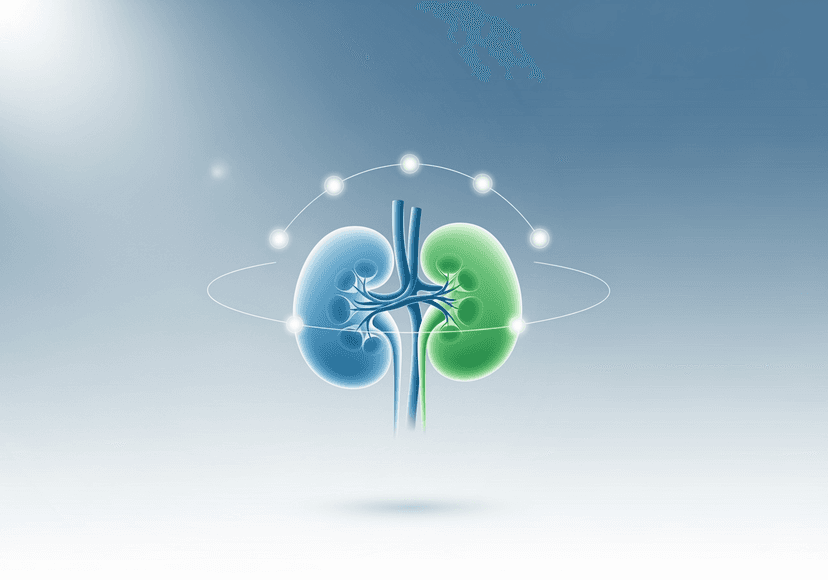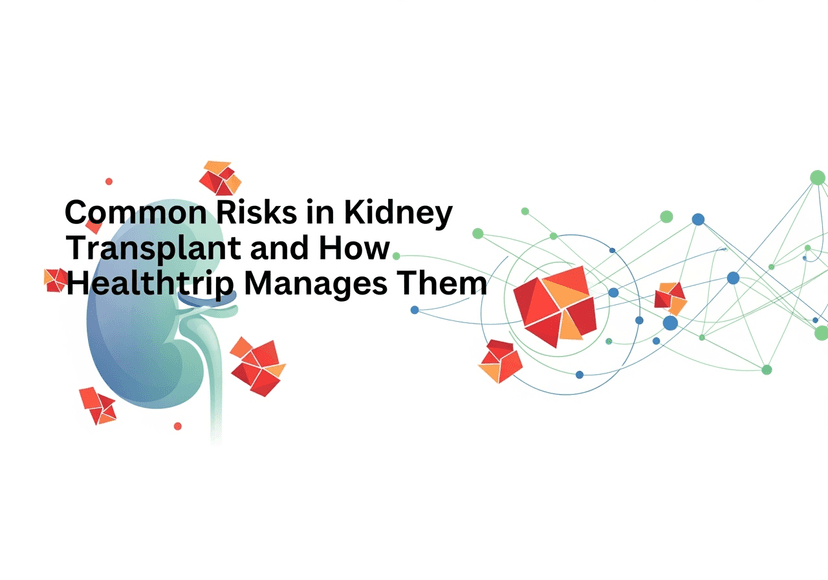
The Role of Telemedicine in Kidney Transplant Care
11 Oct, 2024
 Healthtrip
HealthtripKidney transplants are a life-changing experience for patients suffering from end-stage renal disease. The journey to transplantation is often long and arduous, involving numerous hospital visits, tests, and procedures. However, with the advent of telemedicine, the entire process has become more accessible, convenient, and patient-centric. Telemedicine, also known as telehealth, has revolutionized the way healthcare providers deliver care to patients, and kidney transplant care is no exception. In this blog, we'll delve into the role of telemedicine in kidney transplant care, exploring its benefits, applications, and future directions.
The Current State of Kidney Transplant Care
Kidney transplant patients require close monitoring and regular follow-ups to prevent complications, manage medications, and detect any signs of rejection. Traditionally, this has meant frequent hospital visits, which can be time-consuming, costly, and exhausting for patients. The current system is often fragmented, with patients having to navigate multiple healthcare providers, each with their own set of instructions and recommendations. This can lead to confusion, miscommunication, and a lack of continuity of care. Furthermore, patients living in remote or rural areas may face significant barriers in accessing specialized care, resulting in delayed or inadequate treatment.
Most popular procedures in India
The Challenges of Kidney Transplant Care
One of the primary challenges in kidney transplant care is the need for frequent monitoring and follow-ups. Patients must regularly visit their healthcare provider to monitor their kidney function, adjust medications, and detect any signs of rejection. This can be a daunting task, especially for patients who live far from their healthcare provider or have mobility issues. Additionally, the lack of continuity of care can lead to medication errors, missed appointments, and delayed interventions.
The Role of Telemedicine in Kidney Transplant Care
Telemedicine has the potential to transform kidney transplant care by providing patients with convenient, accessible, and continuous care. Through telemedicine, patients can remotely connect with their healthcare provider, reducing the need for frequent hospital visits and improving health outcomes. Telemedicine platforms enable patients to:
Wellness Treatments
Give yourself the time to relax
Lowest Prices Guaranteed!

Lowest Prices Guaranteed!
Remote Monitoring and Consultations
Telemedicine platforms allow patients to remotely monitor their vital signs, such as blood pressure, temperature, and oxygen saturation, and transmit this data to their healthcare provider. This enables healthcare providers to closely monitor patients and detect any signs of complications or rejection, enabling timely interventions. Patients can also participate in virtual consultations, reducing the need for in-person visits and improving access to care.
Personalized Medicine and Education
Telemedicine platforms can provide patients with personalized education and support, empowering them to take a more active role in their care. Patients can access educational resources, such as videos, tutorials, and articles, to better understand their condition, treatment options, and self-care strategies. Healthcare providers can also use telemedicine to provide personalized guidance and support, improving patient engagement and adherence to treatment plans.
Benefits of Telemedicine in Kidney Transplant Care
The benefits of telemedicine in kidney transplant care are multifaceted. Some of the key advantages include:
Improved Patient Outcomes
Telemedicine has been shown to improve patient outcomes in kidney transplant care. A study published in the Journal of the American Society of Nephrology found that telemedicine-based care resulted in improved blood pressure control, reduced hospitalizations, and improved patient satisfaction.
Increased Access to Care
Telemedicine increases access to care for patients living in remote or rural areas, reducing health disparities and improving health equity. Patients can access specialized care from the comfort of their own homes, reducing the need for lengthy commutes and improving their overall quality of life.
Cost Savings
Telemedicine can reduce healthcare costs by reducing the need for hospitalizations, emergency department visits, and other costly interventions. A study published in the American Journal of Kidney Diseases found that telemedicine-based care resulted in significant cost savings, with an average reduction of $1,400 per patient per year.
Future Directions in Telemedicine and Kidney Transplant Care
As telemedicine continues to evolve, we can expect to see even more innovative applications in kidney transplant care. Some potential future directions include:
Artificial Intelligence and Machine Learning
The integration of artificial intelligence and machine learning algorithms into telemedicine platforms could enable more accurate predictions of patient outcomes, personalized treatment plans, and early detection of complications.
Virtual Reality and Augmented Reality
VIRTUAL reality and augmented reality technologies could revolutionize patient education and engagement, providing immersive and interactive experiences that improve patient understanding and adherence to treatment plans.
Wearable Devices and Mobile Health
The integration of wearable devices and mobile health technologies into telemedicine platforms could enable real-time monitoring, personalized feedback, and more effective self-care strategies.
In conclusion, telemedicine has the potential to transform kidney transplant care, improving patient outcomes, increasing access to care, and reducing healthcare costs. As the technology continues to evolve, we can expect to see even more innovative applications in kidney transplant care. By harnessing the power of telemedicine, we can create a more patient-centric, accessible, and effective healthcare system for kidney transplant patients.
Related Blogs

How Healthtrip Ensures Quality & Safety in Kidney Transplant Procedures
Detailed guide on kidney transplant, featuring doctors, hospitals, risks, recovery,

End-to-End Logistics for Kidney Transplant with Healthtrip's Support
Detailed guide on kidney transplant, featuring doctors, hospitals, risks, recovery,

Healthtrip's Care Coordinators: Your Support During Kidney Transplant
Detailed guide on kidney transplant, featuring doctors, hospitals, risks, recovery,

Top 5 Indian Hospitals for Kidney Transplant
Detailed guide on kidney transplant, featuring doctors, hospitals, risks, recovery,

Post-Kidney Transplant Diet and Lifestyle Tips
Detailed guide on kidney transplant, featuring doctors, hospitals, risks, recovery,

Common Risks in Kidney Transplant and How Healthtrip Manages Them
Detailed guide on kidney transplant, featuring doctors, hospitals, risks, recovery,










